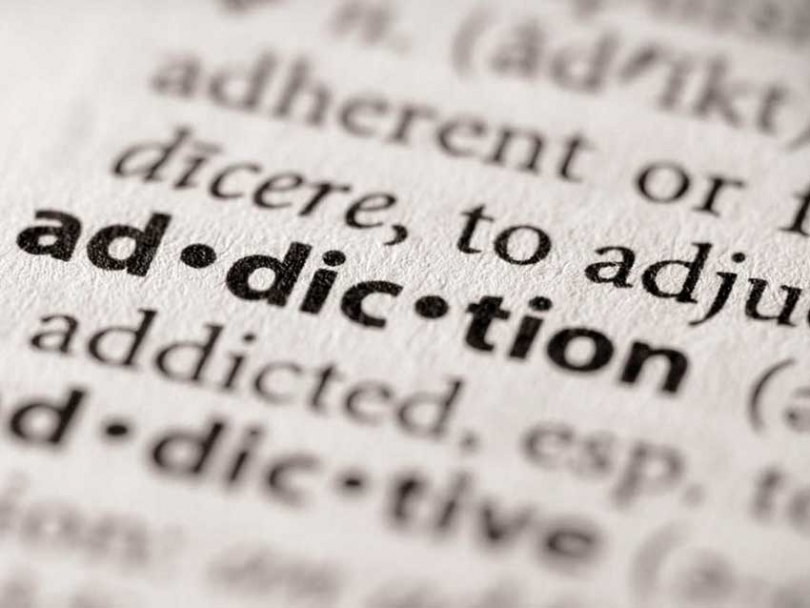 Photo credit: http://www.olivercounseling.com/resources/addiction.jpg
Photo credit: http://www.olivercounseling.com/resources/addiction.jpg
Dec
Muslims addicted to pornography: How our communities harm their chances for recovery
Written by Zeyad Ramadan"I have some good news and some bad news...The bad news is that I relapsed while at work... I felt terrible Zeyad, I just stood there in the bathroom not even able to look myself in the mirror. "
"I felt so angry with myself and decided that this was enough... Whatever you want to call it, the good news is that I decided I would not let Shaytan (the devil) win this time and miss dhuhr (midday) and asr (afternoon) prayers like I usually do when I relapse."
"I decided to use the work's shower facility during the lunch break to make ghusl (ritual purification). Of course I had no towel with me so all I could use were the ugly brown paper towels to dry myself off. I felt so humiliated but I know I did the right thing...."
This exchange is from my experience with the first brother that I worked with struggling with pornography addiction. This conversation we had, part of which you just read, moved me and really solidified for me the certainty that something bigger was needed for Muslims who are hiding in the shadows struggling with an addiction to pornography, and had nowhere to turn to for real help from a Muslim.
As he was speaking, I listened half-shocked, half-saddened and tried to imagine myself in his exact same situation.
The men and women who are addicted to pornography and other sexual behaviors aren't just individuals who simply are not "fearing Allah" enough and were in need of lowering their gaze. Sure, each individual has their journey and to recover they must take responsibility for their actions, but the greatest obstacle for a Muslim addicted to pornography has to do with our Muslim culture.
Here was a broken man, who was a husband and father, just standing there in front of the mirror staring in disbelief at what had just transpired. He was clearly putting himself and his family at risk by accessing pornography at work. Despite being broken, he got back up again no matter how hard it was. This incident brought me to tears because of the amount of sincerity this brother had in trying to change and improve despite how humiliated he felt.
You may question as well, how could this man put his family at such a risk by accessing pornography at work? This is more common than you think, in fact in the anonymous survey I am conducting right now for Muslims struggling with pornography, of the total survey responses, roughly 20 per cent of the individuals have said they have accessed pornography in the workplace.
Two years later, after talking with hundreds of Muslims addicted to pornography, both single and married guys coming from your typical practicing Muslim families, and as more individuals are filling out the survey sharing their stories with me, the problem is very clear for me.
The men and women who are addicted to pornography and other sexual behaviors aren't just individuals who simply are not "fearing Allah" enough and were in need of lowering their gaze. Sure, each individual has their journey and to recover they must take responsibility for their actions, but the greatest obstacle for a Muslim addicted to pornography has to do with our Muslim culture and community itself.
Psychologically speaking we as Muslims have a culture where shame, and fear is an integral part of the motivation system to do right or wrong, and it is this very same shame that can serve as an obstacle for Muslims wanting to seek and get the adequate support that they need.
These brothers are the first ones to know the halal (permissibility) and haram (impermissibility) of pornography and the fact that they should lower their gaze. Reprimanding and warning of Hell-fire may work for some, but for the majority it's this dual cycle of shame and fear that keeps them addicted.
After spending the past two years researching about addictive personalities and directly coaching and counseling Muslims with sexual addictions, it's clear that this shame is what keeps them trapped due to the pressure of displaying perfection and no weaknesses on all spheres of life or else they will not be accepted.
One brother from my recovery program told me that he understood clearly that he was using pornography and acting out as a coping mechanism for dealing with his life.
In his communication with me, he would always start out with the same phrase continuously "I'm sorry I can't really describe what I'm feeling, I'm sorry..." As an NLP practitioner and a life coach I study the effect of how the language pattern an individual uses may trigger them into a certain emotional state or how it may affect their behavioral patterns. Certain language patterns repeated on a consistent basis may limit the individual client's ability to explore other options for their behaviors. In this situation, what this brother really was saying to me was, "I'm really afraid if I express what I'm feeling then you won't accept me," therefore the insistent need for his apologies, and the lack of certainty in his mode of expression.
The key to really helping individuals addicted to pornography, Muslim or not, is for them to feel safe and accepted before any true healing develops. Research has been done to show that the brain will not begin the physiological healing process until the individual feels safe, and only then will the healing begin. It is from this safe place that many men are able to return back to living a life of integrity and serenity.
For the longest time in the United States until the 1950s, drug and alcohol addictions were only seen as a moral issue and that individuals who drank or abused drugs must have been devoid of character. Later research led to the wide acceptance that this was a mental health issue that needed professional help. It wasn't until the 1970s that real work was done to categorize sexual addictions as a mental-health issue and to give it the same seriousness in treatment as a drug or alcohol addiction as well.
There's a lot of work for us to do as a collective Muslim community in changing how we understand addiction recovery from a purely moralistic approach of halal and haram to a mental-health approach where we also understand the chemical effects of addiction, and the deeper psychological factors at play.
Is now not the time to raise awareness about pornography addiction (including other sexual behaviors) from an Islamic perspective?
The initiative I am beginning, with the help of anyone who will listen and join me is called 'Purify Your Gaze' (www.PurifyYourGaze.com), based upon the famous Quranic verse addressing the believers to lower their gaze in order to attain purity for themselves.
With the tawfeeq (success) from Allah, and your help insha Allah (God willing) I pray that we can adequately raise awareness and start giving back hope and support for the thousands of Muslims and their families out there who are struggling silently because of pornography addiction and have lost their belief in being able to recover fully.
*****
Zeyad Ramadan has been working exclusively with Muslims with sexual addictions, and has partnered with Muslim organizations in the United States, Canada and United Kingdom to raise awareness and discussion about pornography addiction, otherwise a taboo topic, in the Muslim community in an initiative called "Purify Your Gaze". This article first appeared at IslamiCity.com. Reprinted with permission.
This article was produced exclusively for Muslim Link and should not be copied without prior permission from the site. For permission, please write to info@muslimlink.ca.












